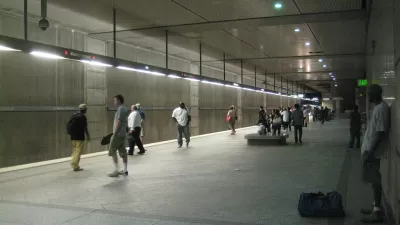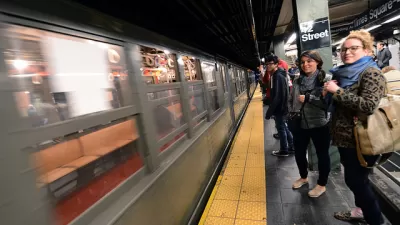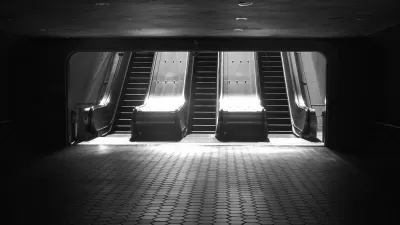While projects funded from the Highway Trust Fund are safe through May, discretionary programs run by DOT from annual appropriations must wait for Congress to approve a budget, which just got more complicated due to Obama's anti-ISIS funding request.
When President Obama requested on September 11 that Congress "authorize $500 million to train and equip pro-Western Syrian rebels battling Islamic State, often referred to as ISIS or ISIL," according to The Wall Street Journal, he complicated an already cloudy annual appropriation process for funding Department of Transportation (DOT) programs in fiscal year 2015.
In other words, "DOT appropriations run out in 19 days," according to Adam Snyder of Politico's Morning Transportation of September 12.
Stephen Lee Davis blogs on September 10 for Transportation for America that "we’re nearing the beginning of a new fiscal year on October 1, and Congress has failed to pass a budget to fund the government for the upcoming year."
The House and the Senate never resolved their disagreement over the annual appropriations for transportation for the upcoming fiscal year — one of many budget issues that they couldn’t agree on this year.
According to the chart in Davis' blog, there are seven programs that fall under appropriations for the Department of Transportation:
- Federal Aid Highways
- Transit Formula Grants
- Transit New & Small Starts
- TIGER [See Streetsblog's "US DOT Awards 72 TIGER Grants, But the Program Remains in Jeopardy"]
- Amtrak Operating
- Amtrak Capital
- High Speed Rail - which has $0 appropriated by Congress
Davis writes that Congress is likely to approve "a 'continuing resolution' to extend government funding through mid-December." He concludes by noting that "as long as the government is operating via a short-term budget, any programs that are discretionary at USDOT (i.e., not funded from the Highway Trust Fund) will likely face great uncertainty."
That means the next round of TIGER grants, money for new transit expansion (New and Small Starts), and passenger rail funding might see delays in when they’re awarded — creating even more funding uncertainty for states, metro areas and transit agencies.
[Hat tip to Jackie@ Climate Plan on T4A blog]
FULL STORY: Budget battles leave a cloud over transportation funding as lame duck session looms

Alabama: Trump Terminates Settlements for Black Communities Harmed By Raw Sewage
Trump deemed the landmark civil rights agreement “illegal DEI and environmental justice policy.”

Study: Maui’s Plan to Convert Vacation Rentals to Long-Term Housing Could Cause Nearly $1 Billion Economic Loss
The plan would reduce visitor accommodation by 25% resulting in 1,900 jobs lost.

Planetizen Federal Action Tracker
A weekly monitor of how Trump’s orders and actions are impacting planners and planning in America.

Wind Energy on the Rise Despite Federal Policy Reversal
The Trump administration is revoking federal support for renewable energy, but demand for new projects continues unabated.

Passengers Flock to Caltrain After Electrification
The new electric trains are running faster and more reliably, leading to strong ridership growth on the Bay Area rail system.

Texas Churches Rally Behind ‘Yes in God’s Back Yard’ Legislation
Religious leaders want the state to reduce zoning regulations to streamline leasing church-owned land to housing developers.
Urban Design for Planners 1: Software Tools
This six-course series explores essential urban design concepts using open source software and equips planners with the tools they need to participate fully in the urban design process.
Planning for Universal Design
Learn the tools for implementing Universal Design in planning regulations.
Caltrans
Smith Gee Studio
Institute for Housing and Urban Development Studies (IHS)
City of Grandview
Harvard GSD Executive Education
Toledo-Lucas County Plan Commissions
Salt Lake City
NYU Wagner Graduate School of Public Service





























